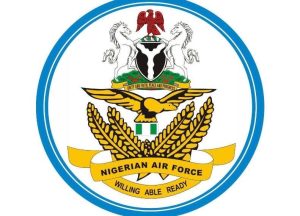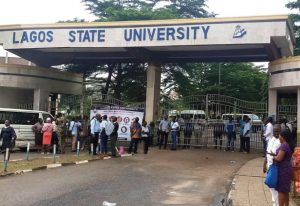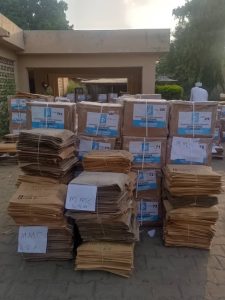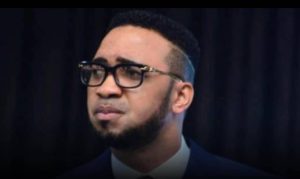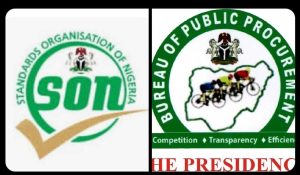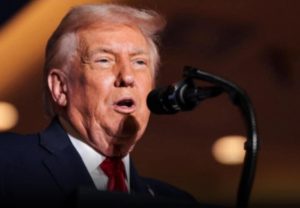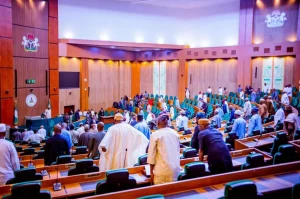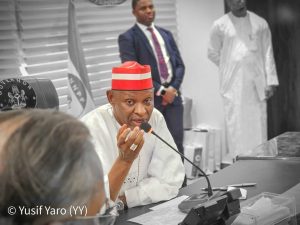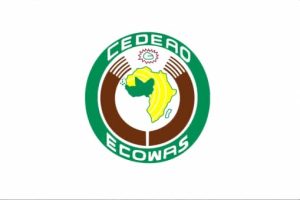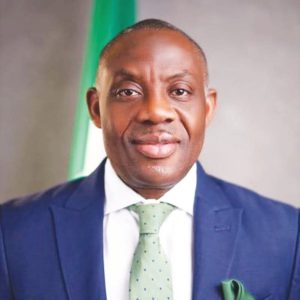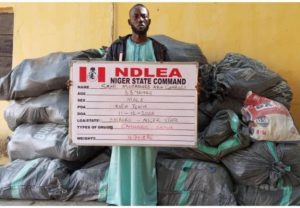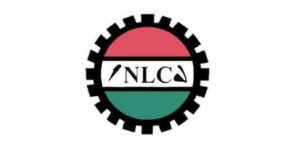By Ikugbadi Oluwasegun
President Bola Ahmed Tinubu says his administration is undertaking bold economic policies to propel Nigeria’s economy out of the downturns occasioned by multiple shocks in the global economy.
He also called for global cooperation among African countries to tackle their shared economic challenges and take advantage of opportunities.
The President, who spoke on Friday when he declared open the 2024 African Caucus Meeting held at the Transcorp Hotel, Abuja, noted that although Africa is grappling with “numerous challenges across economic, humanitarian and social spheres,” countries on the continent must take necessary measures to translate opportunities in natural resources and human capital into growth, innovation and collaboration.
President Tinubu who was represented at the event by his deputy, Vice President Kashim Shettima, said the African Caucus Meeting is an opportunity to brainstorm on the major “challenges and strategies for fostering inclusive growth and sustainable development in Africa”.
Established in 1963 to strengthen the voice of African Governors in the Bretton Woods Institutions (BWIs), the African Caucus chaired by Nigeria’s Minister of Finance and Coordinating Minister of the Economy, Mr. Wale Edun, meets twice annually; first, in the host country of the Chairperson of the Caucus and secondly, at the venue of the Annual Meetings of the IMF and WBG.
The theme of this year’s meeting, “Facilitating Intra-African Trade: Catalyst for Sustainable Economic Growth in Africa,” reflects the collective commitment of member countries to moving the continent forward economically.
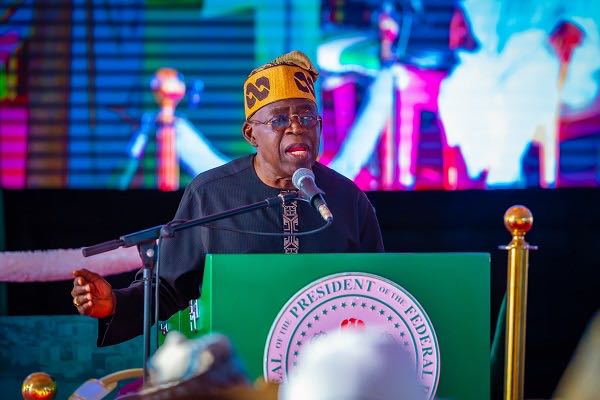
Delivering his address titled, “A Shared Vision for Africa’s Growth,” President Tinubu outlined ongoing efforts by his administration in Nigeria to address the global economic challenges.He urged African countries to improve the quality of life for people across the continent by ensuring that democracy, good governance, and economic institutions work together.
The President said, “As a government, we have initiated bold economic reforms aimed at steering our economy away from the downturns caused by multiple shocks in the global economy toward a path of recovery and resilience through significant economic transformation.
“Our reform efforts have been strategically focused on fostering fiscal and monetary efficiency, driving sustained long-term economic growth, and catalysing job creation in alignment with the SDGs’ priorities.
“We remain committed to optimizing our economic potential, delivering favourable outcomes for our citizens, and ensuring the overall sustainable development of the regional economy. Our efforts are yielding positive results, with improved macroeconomic stability and increased investment.
“President Tinubu further drew attention to the need to enhance international tax cooperation to combat illicit financial flows and ensure multinationals contribute fairly to economies on the continent.
Seeking global cooperation in this regard, he said, “We need enhanced international tax cooperation to combat illicit financial flows and ensure that multinationals contribute fairly to our economies. We must also foster global economic cooperation to tackle shared challenges and leverage opportunities.
“However, we must also acknowledge the need to take responsibility for our own development by undertaking the difficult structural and fiscal reforms required to boost long-term growth and enable reinvestment into our economies through infrastructure and effective social spending.”
President Tinubu described the caucus meeting as a vital platform to share experiences, forge partnerships, and chart a collective path forward.
“Africa’s story is one of resilience, creativity, and hope. Indeed, we have made significant strides in recent years, with many of our nations achieving remarkable economic growth, social progress, and political stability.
“Yet, obstacles such as increasing poverty, rising debt across many countries, inequality, and conflicts continue to widen the gap between our continent and the 2030 Agenda for Sustainable Development Goals. This is a matter of serious concern,” he added.
In his welcome address, Chairperson of the Caucus/Nigeria’s Minister of Finance and Coordinating Minister of the Economy, Mr Edun, said, “Based on available data, 41 African countries are set for stronger growth of up to 3.8% from about 3.4% in 2022 and rising to 4.3% in 2025. These exceed the global average of about 3.2%.”
On his part, Governor of the Central Bank of Nigeria, Mr. Olayemi Cardoso, emphasized the significance of the meeting, saying Africa stands at a “crossroads with unprecedented opportunities for development alongside significant challenges.
“To navigate this complex landscape and set the continent on the path of sustainable economic growth, we must leverage the support of our global partners,” he added.
For his part, African Union Commissioner for Economic Development, Trade, Tourism, Industry and Minerals, Ambassador Albert Muchanga, noted the importance of domestic resource mobilization.
“We must see the African market as a viable channel for domestic resource mobilization to address the issue of the continent’s sustenance,” he noted.
Speaking virtually, Director General of the World Trade Organisation (WTO), Dr. Ngozi Okonjo-Iweala, provided a comprehensive analysis of Africa’s economic situation and potential. She emphasized the need for greater regional integration, just as she said, “According to UN data for 2021, only 13% of Africa’s goods trade was internal, compared to 21% for Southeast Asia, 39% for the US, Mexico, and Canada, and 60% for Europe.”






